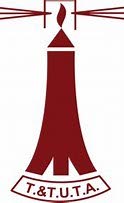Return of local school boards

AFTER A hiatus of almost three years, the Ministry of Education has once again resumed the appointment of local school boards (LSB). These are teams established in government schools (primary and secondary) to support the principal in the overall management of the school.
Its introduction was a critical component of school-based management and was aimed at providing schools with greater autonomy by forming working relationships among stakeholders, inclusive of students, parents, teachers and representatives of the communities in which the school operates.
The concept is consistent with the philosophy that the school is of and by the community and thus takes its mandate from the community.
Its introduction was a crucial recognition by the authorities that schools cannot exist in a vacuum and must represent the hopes, dreams and aspirations of the community, being the vehicle for the development of the community.
LSBs bring a wide cross-section of resource personnel from the community in a formalised working arrangement to augment the resource base of the school. Their functioning and mandate are guided by the ministry’s strategic plan, LSB regulations and manual, as well as the school development plan (SDP).
The SDP is a working document that guides every aspect of the school’s operation and functioning and LSBs have played a critical role in the realisation of the school's strategic goals and objectives, assisting with the mobilisation of critical resources.
A key role envisioned for the LSBs is the involvement of the community in the life of the school, thus ensuring there is a sense of ownership of the school by the community.
LSBs also act as a conduit between the school and other governmental agencies, as well as community-based and non-governmental organisations. It also encourages a sense of volunteerism and active participation from members of the school community, hopefully improving the perceived image of the school in the community.
LSBs assist the principal in several areas including the facility management and physical maintenance of the school plant, capital improvement, security of the plant and building stronger relationships with the community. They are, however, expressly forbidden from entering the realm of academic oversight, curriculum development and delivery, as well as staff and student discipline, which remain the sole purview of the principal.
Since their inception, LSBs have become a critical asset in the functioning of many government schools and their absence over the last three years was rather unfortunate. Till now, no explanation has been proffered by the authorities for the inordinate delay in reappointment of the LSBs. It is hoped that this will not happen again.
LSBs are governed by the Education (Local School Board) Regulations of 2000, consistent with the objective of decentralisation and autonomous management of schools. These two terms, however, have had different interpretations over the years by the hierarchy of the ministry, beginning with line ministers and thus convenience seem to have been the operative term when it came to school-based management and decentralisation.
Over recent years, the LSB unit of the Ministry of Education has been starved of resources to carry out the LSB mandate, unable to provide grants to boards to carry out their work and forcing many boards to work from scratch. This reduced many boards in the past to function as fund-raising appendages of schools owing to the absence of adequate funding of both the LSB and the school.
In the final analysis, LSBs are an excellent concept and approach to modern education and has the potential to assist principals with overall school improvement if allowed to and once given the appropriate support and resources. Since their inception, they have been able to have a significant positive impact on many schools. School personnel and education stakeholders would do well to embrace the idea in their quest to enact school improvement.
The effective functioning of the LSB can make a difference in enhancing the status and worth of schools to the communities that they serve, especially those that suffer from socio-economic deficits. LSBs are one of the ways in which communities can assume true ownership of the school, ensuring their relevance in the organic functioning of the community.
TTUTA, through its official representation on LSBs, will continue to play its part in ensuring the success of each board and urges all other stakeholders to do likewise. Given the rise in student indiscipline at many of the nation’s schools, the capacity of LSBs to assist with the realisation of SDPs and schools’ strategic objectives is timely.
Best wishes to all newly appointed LSBs.

Comments
"Return of local school boards"